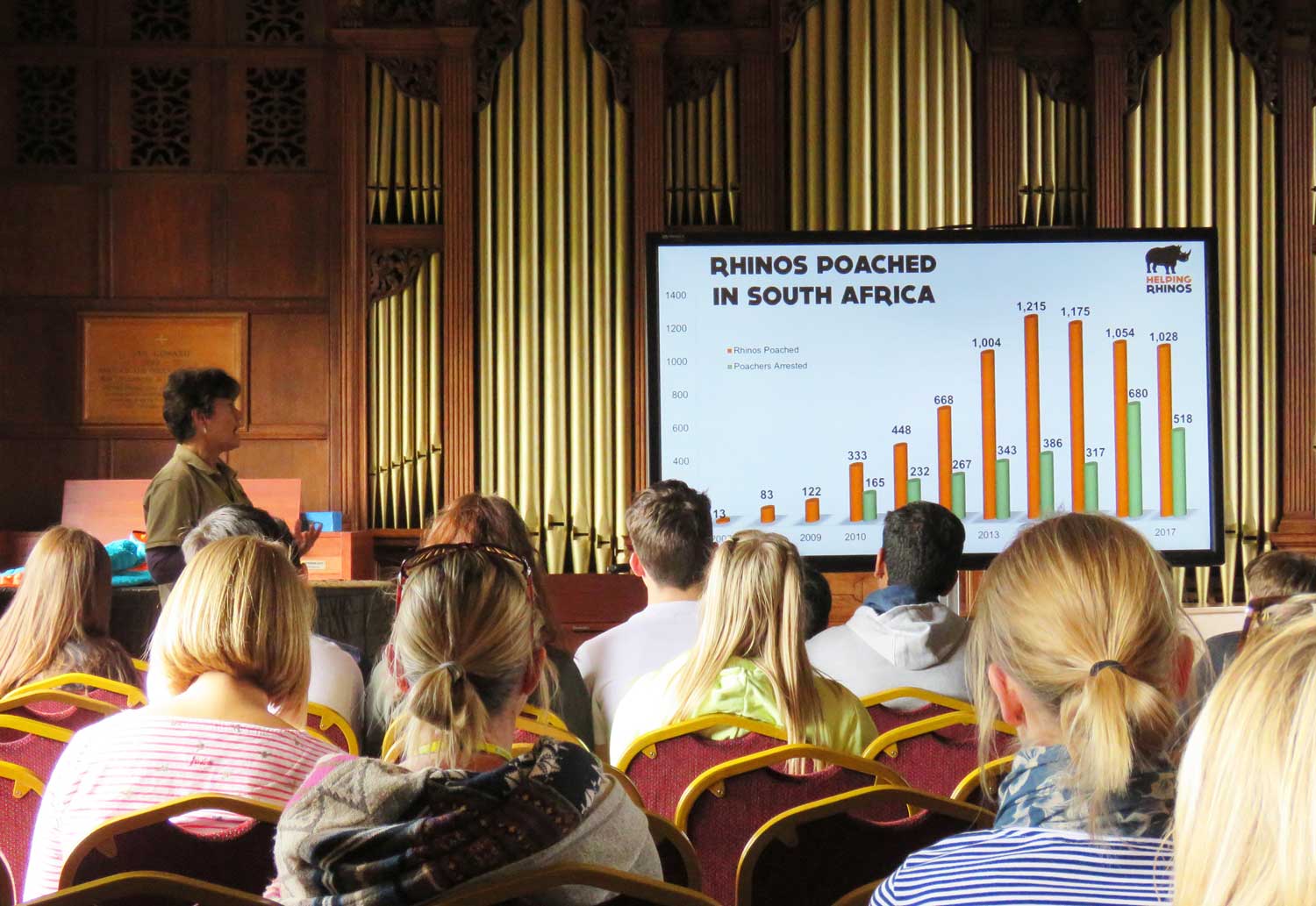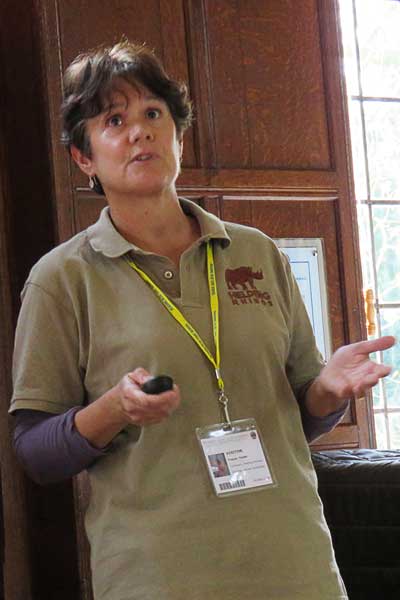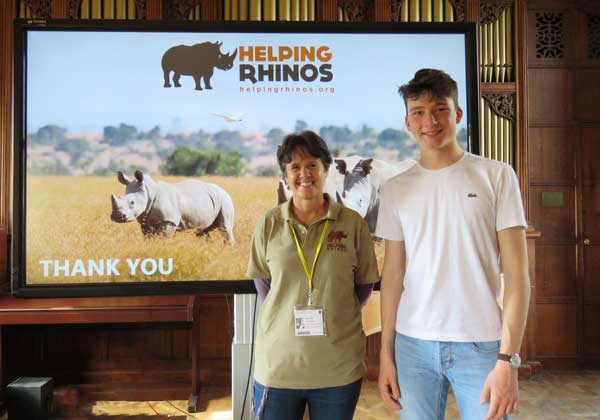RBC community learn about the urgency of rhino conservation
 Tracey Taylor, education officer for the Helping Rhinos conservation group based in Sussex, spoke to students, parents and staff at Blue Coat to make our community more aware of the current world rhino crisis.
Tracey Taylor, education officer for the Helping Rhinos conservation group based in Sussex, spoke to students, parents and staff at Blue Coat to make our community more aware of the current world rhino crisis.
Tracey stepped in at the last minute, as the original speaker, James Mwenda – a ranger at Ol Pejeta Conservancy in Kenya who cared for Sudan, the last surviving male northern white rhino, before his death in 2018 – was stuck in Nairobi because of a visa delay.
Ninety percent of the worlds’ rhinos – either black or white rhinos – live in Africa; and the remaining 10%, made up of Indian, Sumatran and Javan, live in Asia. A hundred years ago, the world’s rhino population was around half a million – today that number is less than 29,000. The numbers have dwindled because of habitat loss and poaching – the former caused by the growing human population, deforestation and drought caused by global warming; and the latter because of the use of keratin from rhino horns in traditional Asian medicine, mainly in China and Vietnam.
 Because of this, the situation has reached what Tracey called ‘the tipping point’ i.e. when baby rhinos are not being born quickly enough to replace the rhinos that are being killed by poachers. If there are no changes to the current situation, rhinos in the wild will be extinct within 10-15 years.
Because of this, the situation has reached what Tracey called ‘the tipping point’ i.e. when baby rhinos are not being born quickly enough to replace the rhinos that are being killed by poachers. If there are no changes to the current situation, rhinos in the wild will be extinct within 10-15 years.
Blue Coat’s Admissions Manager, Ms Fernandes, said she found the facts about declining numbers ‘shocking’.
Work that is done mostly in Africa by rhino conservation groups (including Helping Rhinos) is many fold:
- Fundraising and support for an all-female South African group called the Black Mambas, who are trained like an army to patrol the edges of game reserves, to act as a deterrent to poachers and to spot snares and poachers’ tracks. The group also empowers women who, traditionally in African culture, are marginalised in the workforce.
- Promotion of the Ol Pejeta Conservancy, which is the most successful breeding place in Africa for black rhino.
- Support for the Zululand Rhino Orphanage in South Africa where volunteers stay with orphaned rhinos 24 hours a day as they need feeding every two hours, as well as attention to help them combat the trauma of losing their mothers.
- The use of canine and armed anti-poaching patrols
- The use of new technology – including drones and infra-red cameras – to detect poachers
- The use of de-horning by some organisations – although this is controversial
Blue Coat’s newly-appointed Head of School, Year 12 Ollie, who is passionate about animals and plans to devote his future career to animal conservation, found the talk ‘incredibly interesting’, and afterwards spoke to Tracey about his future plans and the best way for him to become involved in rhino conservation.

